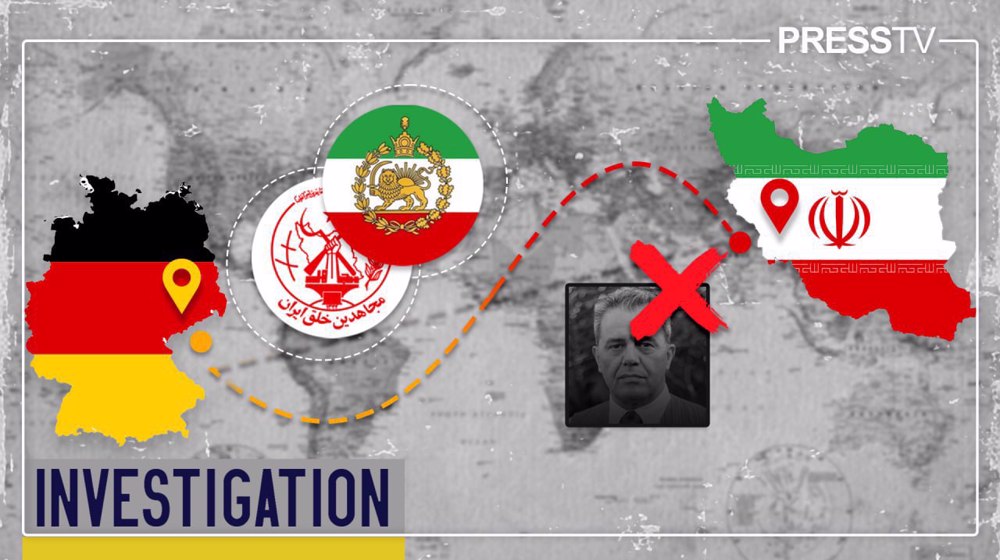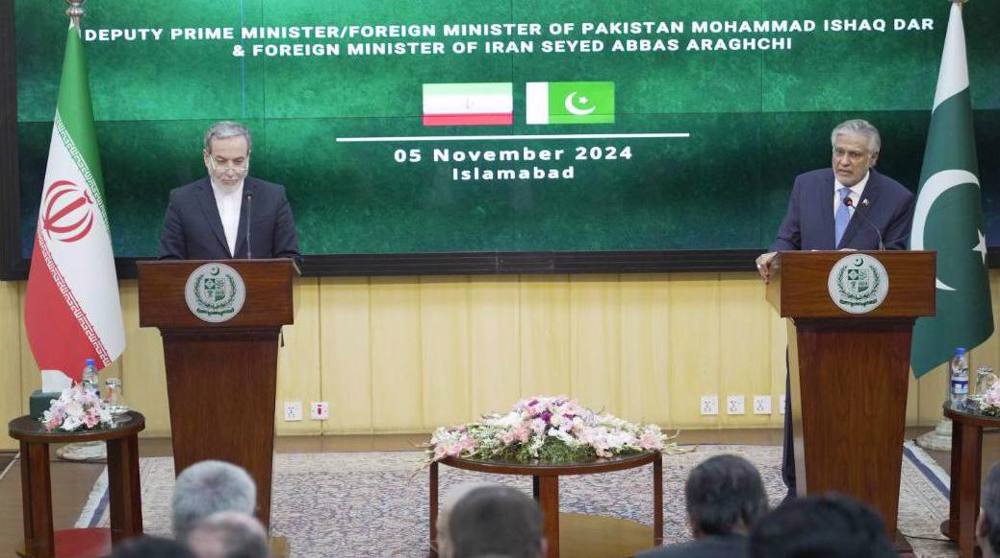Iran has enough leverage to continue oil exports under US sanctions: Envoy to UK
Tehran’s envoy to the UK says the US has failed to rally the world community behind its new sanctions against Iran, and that the Islamic Republic possesses “enough leverage” to keep its oil sales going despite US attempts to reduce them to “zero.”
In the face of American sanctions, “we have lots of alternatives because we have had some experiences from the past,” Hamid Baeidinejad told the CNN’s Christian Amanpour in an interview published on the network’s website on Wednesday.
“We know that, in fact, the difference, this time, is that countries are not ready to comply with the United States’ request. So, we have enough leverage to continue our exports,” he added.
The envoy said the US intention of bringing Iranian exports to a halt has been “unsuccessful.”
On November 4, the US returned its sanctions against Iran’s energy and banking sectors, which it had lifted under the 2015 multilateral nuclear accord with the country. Washington exited the agreement back in May.
The US has been lobbying frantically with major international buyers of the crude to have them stop their purchases.
Earlier in November, though, it granted waivers from the sanctions to eight of Iran’s customers, including China, India, Japan and South Korea, saying it sought to prevent the oil market from facing sudden setbacks.
Washington has said the exemptions were to last for only six months, and that the countries would have to gradually stop buying Iranian oil.
The envoy, meanwhile, pointed to the psychological pressure that Washington has been exerting on the Iranian nation parallel to its sanctions policy.
“The importance here is the psychological impacts rather than very practical [effects] on the ground. So, they started a kind of psychological warfare to frighten our people and to sabotage our economy,” he said.
“But gradually we were able to, in fact,…find ways and means that we can guarantee we can continue to export oil,” the ambassador noted.
‘Iran won't meet US conditions’
Baeidinejad said the conditions set by the US for Iran so that Washington would stop pressuring Tehran were “impossible to meet.”
He was referring to provisions listed by Secretary of State Mike Pompeo, which say Iran has to “stop uranium enrichment, end support for ‘Middle East terrorist groups, including the Lebanese Hezbollah, Hamas, and the Palestinian Islamic Jihad,’ withdraw all forces under Iranian command in Syria, and end its threatening behavior against its neighbors, many of whom are US allies.”
Baedinejad said, “These are just allegations.”
“They are putting forward conditions that, they know better than everybody else, are impossible for Iran to be accomplishing,” he added, referring to “zero enrichment” as a case in point.
On Saudi Arabia
Baeidinejad was further asked whether there were any “benefits” to be drawn from the pressure that has been placed on Saudi Arabia over the October 2 murder of a Saudi journalist in the kingdom’s consulate in Istanbul.
Jamal Khashoggi entered the facility that day without ever coming out. Saudi officials initially denied having any knowledge of what had happened to him before acknowledging later that he had been murdered there.
The Iranian envoy said the pressure could be used to stop wrongful Saudi regional and international behavior.
“The benefit that we can get from this new situation is that the West understands better that, in fact, there is no possibility that the policy of coercion and intimidation by Saudi Arabia would be successful in the region,” he said.
“If now, the West, the United States and its European partners, would understand that this policy has a quite devastating impact on the security of the region and try to see what they can do to redress the situation, that could be the benefit that we can get, all of us,” he added.
48-year-old Palestinian man serving 48 life terms completes 22 years in Israeli jails
From MKO to Tondar, how Germany became safe haven for anti-Iran terror groups
Hamas open to any proposal aiming to end Gaza war: Hamdan
Role of private sector in Iran’s thriving space industry
Four Palestinians killed in Israeli strikes on West Bank
Iran warns of ‘calculated, precise’ response to Israeli aggression
After year-long genocide, Israeli military hires private firms to flatten buildings in Gaza
Malaysia working on resolution to expel Israel from United Nations













 This makes it easy to access the Press TV website
This makes it easy to access the Press TV website